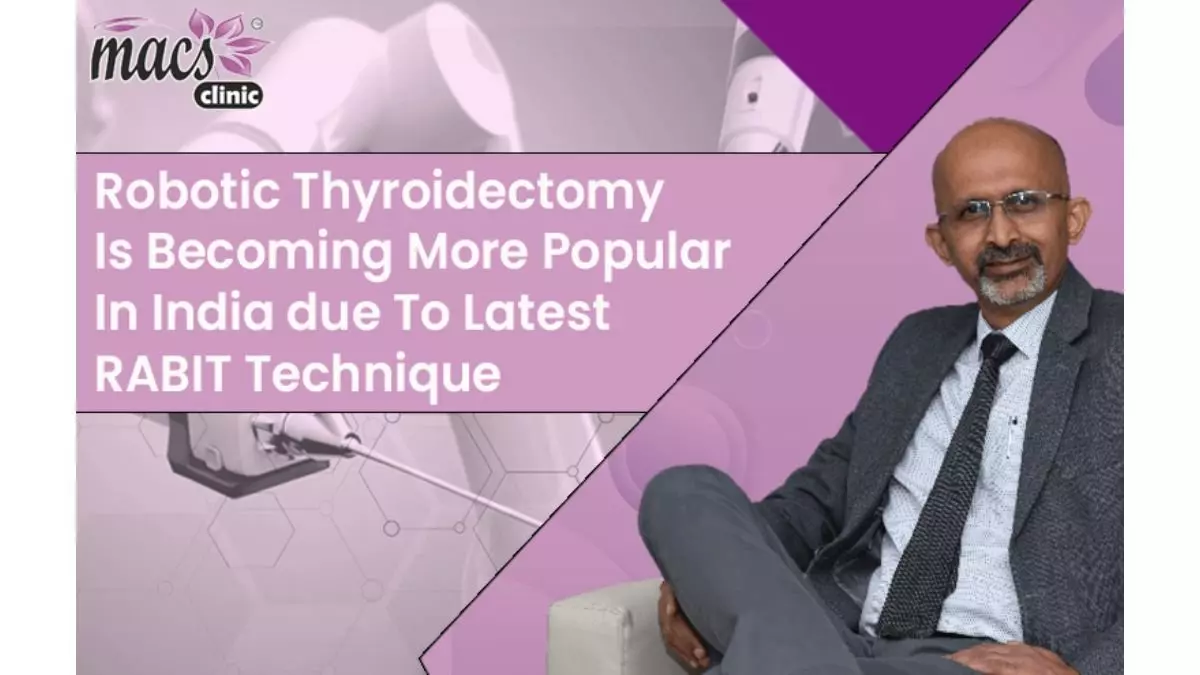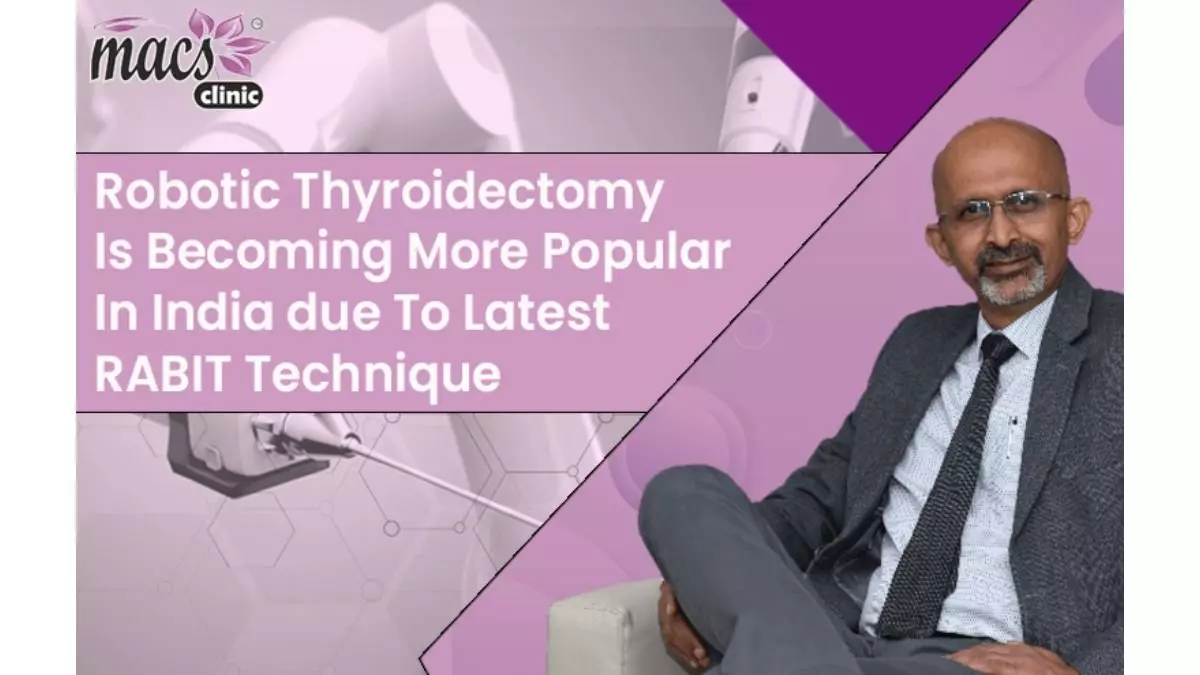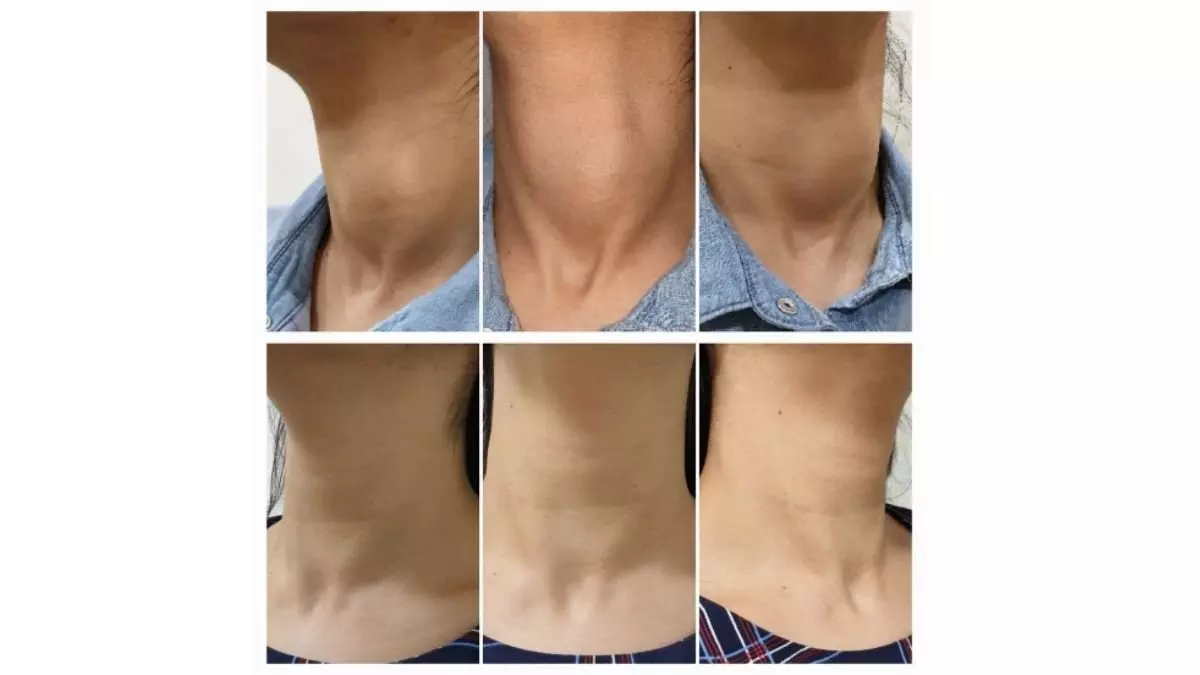Robotic Thyroidectomy is becoming more popular in India due to the latest RABIT technique


The thyroid gland, which is found in the neck and is in charge of generating hormones that control the body’s metabolism. The thyroid gland can develop many different diseases which includes benign and cancerous growths. Benign growths include multinodular goiter, solitary thyroid nodule, colloid goiter etc. These are mostly harmless, but, can cause trouble due to pushing the adjoining organs and turning into cancer over a long time. Despite the fact that thyroid cancer is often rare, it is more prevalent in young people and adolescents, particularly among women. The good news is that thyroid cancer has a high cure rate and a very good prognosis compared to many other cancers.
According to research, most thyroid nodules are not cancerous, with over 80% being benign. However, if you have a lump or swelling in the front of your neck, it is essential to consult your healthcare provider to rule out any possibility of thyroid cancer. Surgery, what is medically called a thyroidectomy, is the main choice of treatment for either benign nodules or cancer of the thyroid gland.
One of the latest and most reliable surgical procedures for treating thyroid cancer is the Robotic-assisted Breast-axilla Insufflated Thyroidectomy (RABIT) developed by Dr Sandeep Nayak, MACS Clinic, Bangalore. The procedure uses a surgical robotic system to remove thyroid tumors, and it is minimally invasive, resulting in faster recovery and minimal scarring. The precision of robotic surgery when performed by experts can reduce the complication rates of surgery.
Dr Nayak employs RABIT, a robotic instrumentation system, to reach the thyroid and to preserve the important structure surrounding it. A few small incisions in the armpit skin fold are made by the surgeon to gain access to the afflicted area and tumor, leaving behind incredibly minute scars. Compared to patients who have standard open surgery or other forms of robotic surgery, individuals who have this method have substantially less blood loss, and less post-operative pain, and recover much more quickly. The total wound size of this surgery is less than 3 cm in most of the patients.
Because of several advantages of RABIT over other robotic thyroidectomy techniques and many surgeons across India have trained from Dr Sandeep Nayak and have implemented the same in their practice. There are currently 4 centres in South India and 3 centres in North India that have started performing RABIT thyroidectomy. They have all adopted this technique after training under Dr Sandeep Nayak. They all feel that this is by far the easiest and the best among the robotic thyroidectomy styles.
Dr Nayak, one of the leading robotic surgeons in India says, “I am happy that the technique developed by me is benefiting many patients. Robotic surgery has several advantages over open surgery and I am happy to note that RABIT is considered the best technique of robotic thyroidectomy by most of the surgeons performing robotic thyroidectomy.”

Ms Jasmine (Name changed), 27-year lady who underwent RABIT says, “I was just 2 months away from my marriage when I was found to have a nodule in thyroid. I underwent RABIT and was happy to share the picture of my neck. No one can make out that I have undergone surgery of the neck. I was cured of my problem without any scars.”
In conclusion, younger adults and adolescents are more likely to develop thyroid nodules, and early detection and treatment are crucial for a better prognosis and survival. Patients with thyroid nodules have a trustworthy, minimally invasive surgical option thanks to the RABIT method created by Dr Sandeep Nayak. As with any medical condition, it is vital to consult your healthcare provider if you notice any lump or swelling in the neck region.




